Part 3 of a 5-part series: 6 Pitfalls to Avoid When Starting a Marketing Agency
Did you miss part 2? No problem – you can find it here!
In terms of growing a consulting business or an agency, Sujan Patel (Web Profits co-founder) and Eric Siu (Single Grain CEO) have made a million mistakes. So many times when they should have gone out of business, lo and behold, they both emerged to build seven-figure agencies again.
In this article, they’re going to share with you the mistakes they made along the way so you don’t have to.
6 Pitfalls to Avoid When Starting a Marketing Agency
Mistake #1 – Trying to Do Everything Yourself
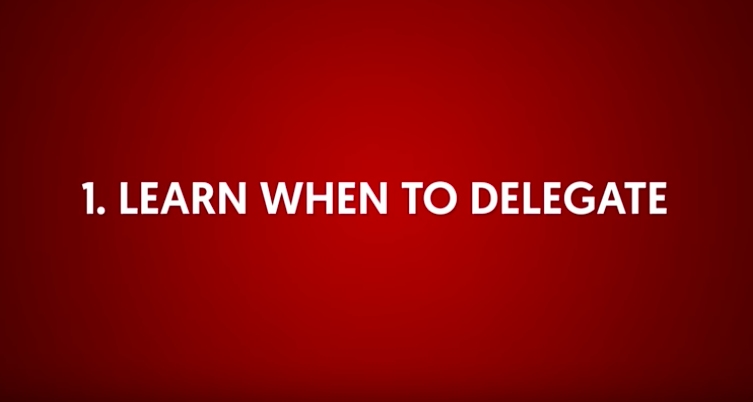
If other people can even do 70 or 80% of what you can do, delegate it. Your goal is to figure out the things that you need to do next to drive the vision, and if you can’t delegate, you’re not going to be able to grow, you’re not going to be able to scale. That’s fine if you want to continue to be a consultant or a freelancer, but it’s not fine if you are trying to build an agency.
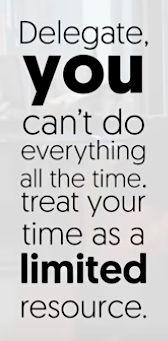
Mistake #2 – Not Knowing Your Limitations
 Along with delegating, you also need to figure out what you’re good at, what you’re bad at, and hire people in those areas where you have gaps. Sujan is really good at switching gears between different clients and whatnot, but he’s not a very process-oriented person. He can do things himself, he can teach people, but when he hires somebody who can take these things that they always do over and over again (he hired somebody specifically to create SOPs), his business started to thrive.
Along with delegating, you also need to figure out what you’re good at, what you’re bad at, and hire people in those areas where you have gaps. Sujan is really good at switching gears between different clients and whatnot, but he’s not a very process-oriented person. He can do things himself, he can teach people, but when he hires somebody who can take these things that they always do over and over again (he hired somebody specifically to create SOPs), his business started to thrive.
And when they onboard new employees or offboard employees, things didn’t get lost in the shuffle. They were essentially able to hand over playbooks that they needed to use, which turned the onboarding process from three months to a couple weeks and they got it.
Mistake #3 – Not Paying Attention to Company Culture
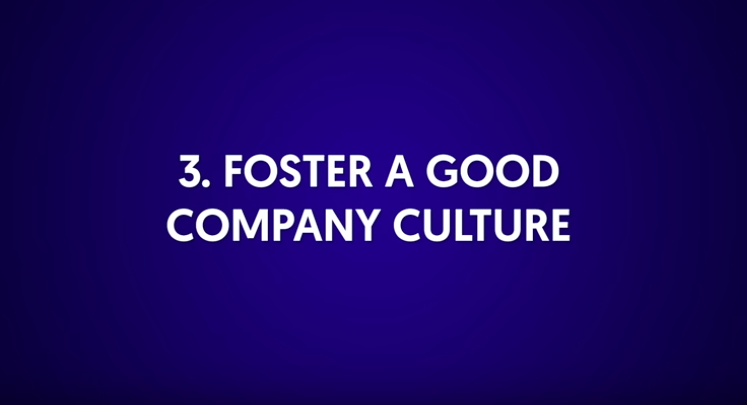 People throw this concept around a lot, especially in Silicon Valley. They say: “Oh, we have a great culture.” Everybody says that. But how do you actually build a great culture, and what does that mean?
People throw this concept around a lot, especially in Silicon Valley. They say: “Oh, we have a great culture.” Everybody says that. But how do you actually build a great culture, and what does that mean?
Culture is basically how the entire company is built up, how people interact with each other, how people collaborate, all that different stuff. Studies show that the likelihood of job turnover at an organization with high company culture is a mere 13.9%, whereas the probability of job turnover in low company cultures is 48.4%.
This means that there is a strong correlation between employee happiness and productivity: The Department of Economics at the University of Warwick found that happy workers are 12% more productive than the average worker, and unhappy workers are 10% less productive. In fact, unhappy employees cost American business over $300 billion each year. So it literally pays to make sure your employees are happy!
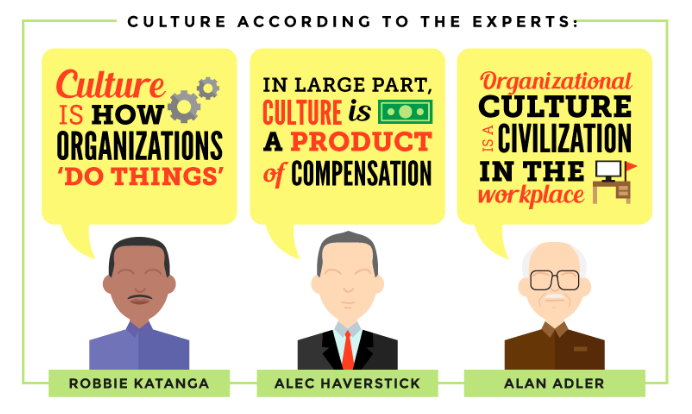
So culture-wise, here are a couple things that they do at Single Grain:
- Every Monday they do a team lunch as a way to relax and bond. They even have a team called the Bond Squad that sets up special events like dinners, Thanksgiving dinners, white elephants, Christmas parties, etc.
- Every two weeks they do happy hours. These seem like standard things, but in addition to that they also make sure that culture-wise, it’s about more than just the events that they do; it’s also that they want to take care of their people.
- This ties into retention, ’cause if you have a great culture, you have great retention. So they’ve increased their paid time off from 15 days to 25 days for people who stay at least two years. That’s just to make sure that people take time off, and when people come in refreshed we know they’re going to do better.
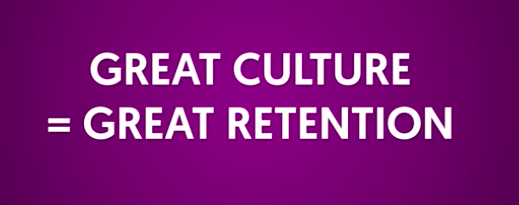
So culture helps everyone perform better, people get along better, and you operate like a machine because if you just keep operating like a freelancer or a consultant, you’re not going to be able to scale well.
Because in the agency world people tend to work long hours with tight deadlines, you definitely want to give your people breaks to refresh and recharge, which really helps a lot with morale.
Mistake #4 – Taking on the Wrong Clients
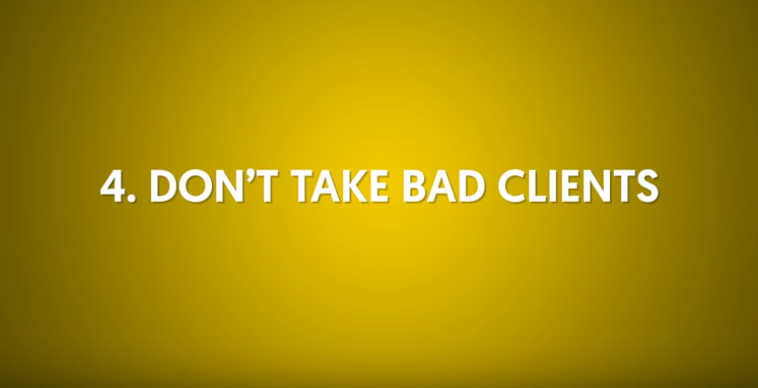 One mistake Sujan made was taking on the wrong type of clients. We’ve all made this mistake. The money’s good, but suddenly you’re at the closing stage of the deal and the client just kind of sounds like it’s not going to be the best fit. To quote an old advertising campaign: Just say no.
One mistake Sujan made was taking on the wrong type of clients. We’ve all made this mistake. The money’s good, but suddenly you’re at the closing stage of the deal and the client just kind of sounds like it’s not going to be the best fit. To quote an old advertising campaign: Just say no.
You should always look for red flags in a client. Sujan has three or four different questions to ask, or things to look for:
- Their personality. Can they fit in and work with your team?
- Are they okay when you give pushback, because frankly, when a client works with you, they’re looking for you to give them feedback. You’re supposed to be better at marketing than they are. But if they start really being hard to work with, or not taking that pushback well, it’s kind of a sign of a bad client.
- Their attitude. Some clients just like to berate, and there are certain personalities that just don’t work. Ask yourself: are they going to be an asshole? No matter how much they pay, working with assholes is not worth it. Every time Sujan has broken this rule – and every few years he breaks this rule, ’cause the brand is that great – he kicks himself in the butt. Because it always comes back to: don’t take on bad clients.
Mistake #5 – Not Looking at the Numbers
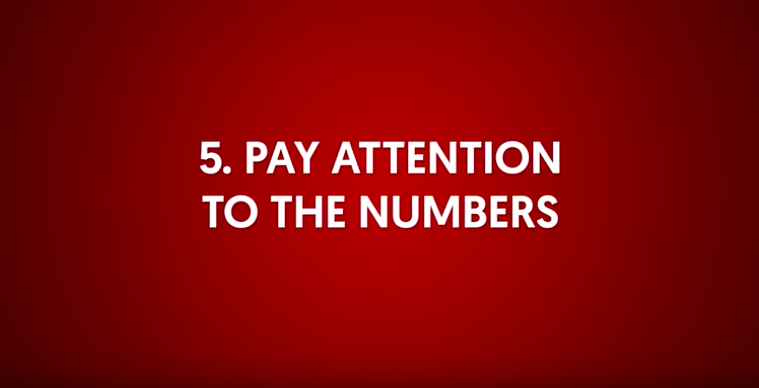
You have to look at the numbers. If you don’t look at the numbers, you’re going to be screwed. You can kind of get away with this as a freelancer or consultant where you’re just kind of haphazardly doing things. Remember, you have people that you’re responsible for, and you’re paying for costs such as office rent, so you have to know what your numbers are.
For example, each week Eric gets together with the Single Grain sales team and they’ll look at the pipeline, the conversion rates, how many new sales they added, how many potential deals they’re going to close, how many qualified leads they got, etc.
And they’re constantly looking at the funnel, too: Where are people dropping off the most and what can they fix? They look at it from a sales and marketing perspective – how can they continue to optimize the sales funnel, the marketing funnel?
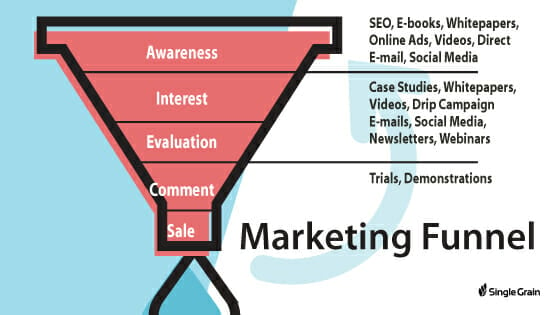
He also looks at the numbers around expenses. How can they keep expenses down? And how can they also spend some of that money, if they have extra money, on bonuses for people? So it’s kind of manipulating the numbers to make sure that your company’s performing really well.
Mistake #6 – Thinking You Don’t Need to Learn Anymore
 The last mistake on this list is failing to educate yourself. Like leveling yourself up, leveling your team up. This is really, really important.
The last mistake on this list is failing to educate yourself. Like leveling yourself up, leveling your team up. This is really, really important.
When Sujan first started Single Grain back in 2005, he was 20 years old. He didn’t know anything about business, but he was good at marketing. Well, he went from being a good marketer as a consultant, and people hiring him as a marketer, to being in the business of marketing. So he was, in his words, just a really bad CEO.
He made lots of mistakes, some of which are shared here, but there are a lot more he’s made, too. So you always have to educate yourself and level yourself up, but it’s also about the right network that you put yourself in.
Sujan and Eric are both members of EO, Entrepreneurs’ Organization, which is great because you’re around other CEOs and entrepreneurs who are constantly leveling up, too, so you can learn from each other about things like what P&L is, learning how to balance and look at the numbers, learning to do quarterly projections, learning what your limitations are, and what proper limitations are in a business.
These are all things that just don’t come overnight. No one tells you how to do this or that you need to focus on it. You have to figure out these new problems. So Sujan always recommends spending maybe $5K-10K a year, or 5-10% of your income, on education for yourself and your leadership team.
That’s huge. If you can’t do that, you can’t scale at all. If you’re constantly in your own head, and you think you’re too good to get help from other people, that’s where you’re going to fail, because being an entrepreneur is a very lonely game. Even when you have people around you, it’s totally different, because they see you differently. But when you’re around other entrepreneurs where you can share each other’s pain, it’s a totally different story.